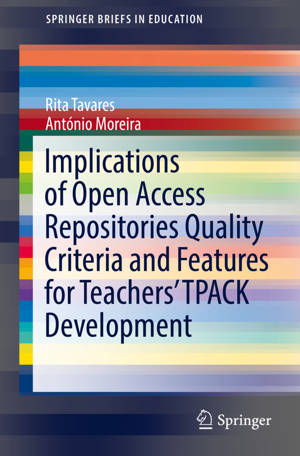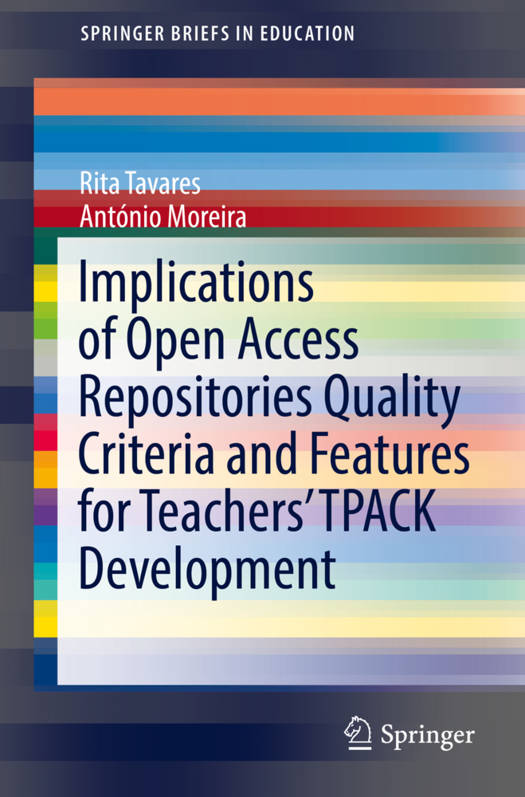
- Afhalen na 1 uur in een winkel met voorraad
- Gratis thuislevering in België vanaf € 30
- Ruim aanbod met 7 miljoen producten
- Afhalen na 1 uur in een winkel met voorraad
- Gratis thuislevering in België vanaf € 30
- Ruim aanbod met 7 miljoen producten
Zoeken
Implications of Open Access Repositories Quality Criteria and Features for Teachers' Tpack Development
Rita Tavares, António Moreira
€ 52,95
+ 105 punten
Omschrijving
This brief will explore how open access repositories are being developed and maintained, in order to provide, disseminate and promote the development of digital educational resources. The main objective is to analyse open access repositories quality criteria and features, and how these can improve teachers' Technological Pedagogical Content Knowledge (TPACK) development. It is organized in six major sections. Section one addresses an historical overview of open access repositories. In section two the authors present the objectives and the methodology used in the present study. Sections three, four and five analyse namely (i) the prevalence of European Science Education open access repositories and teachers' perceptions of those same repositories, (ii) the most common European Science Education open access repositories features and their implications, and (iii) the impact of open access repositories usage on teachers' TPACK development. The last section focuses on the analyses of a selected open access repository [House of Sciences (originally Casa Das Ciências)], addressing its characteristics and features, the impact of social media features in digital educational resources (re)use, and the relationship between repository quality criteria and teachers' TPACK development.
Specificaties
Betrokkenen
- Auteur(s):
- Uitgeverij:
Inhoud
- Aantal bladzijden:
- 55
- Taal:
- Engels
- Reeks:
Eigenschappen
- Productcode (EAN):
- 9783319579153
- Verschijningsdatum:
- 7/07/2017
- Uitvoering:
- Paperback
- Formaat:
- Trade paperback (VS)
- Afmetingen:
- 156 mm x 234 mm
- Gewicht:
- 122 g

Alleen bij Standaard Boekhandel
+ 105 punten op je klantenkaart van Standaard Boekhandel
Beoordelingen
We publiceren alleen reviews die voldoen aan de voorwaarden voor reviews. Bekijk onze voorwaarden voor reviews.











